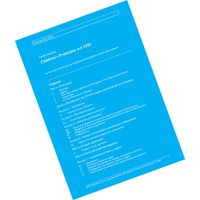 19 May 2016
19 May 2016
In the wake of the death of Chloe Valentine and the subsequent Coroner’s Inquiry, the April 2016 amendments to the State’s Children’s Protection Act shift the emphasis to safety.
- Inserted into the objects of the Act is ‘The primary object of this Act is to keep children safe from harm and in the administration of the Act that object must, in all cases, be the paramount consideration.’
- Removed is reference to ‘Fundamental principles’ which prioritised considerations of wellbeing and best interests.*
- Observation of the Aboriginal and Torres Strait Islander Placement Principle which was deleted with the rest of Fundamental Principles is restored under Provisions relating to dealing with Aboriginal and Torres Strait islander children.
- The provision for ‘temporary guardianship instruments and restraining notices‘. These can apply where a parent or guardian of a child committed, or attempted to commit the following acts against a child victim – murder, manslaughter, criminal neglect, causing serious harm or creating risk of serious harm. This can be retrospectively applied, that is, offences committed prior to these amendments can be taken into consideration.
- Specific weight is given to the views of the child by this insertion into the objects of the Act. ‘If decisions are to be made under this Act in relation to a child, the decision maker must have regard to the the views of the child (if the child is willing and able to express such views).’
* Previously the Act referred to:
- the child’s right to be cared for in a safe and stable family environment, or in an alternative form of care which provided the child with every opportunity to reach their full potential if a safe and stable family environment could not be provided
- the child’s wellbeing and best interests as paramount considerations
- observation of the Aboriginal Placement Principle (thought his was restored elsewhere)
- provisions for children placed in alternative care such as being provided with a nurturing safe and stable environment, being allowed to maintain relationships with family where possible without serious risk and consultation with children in decision making.
